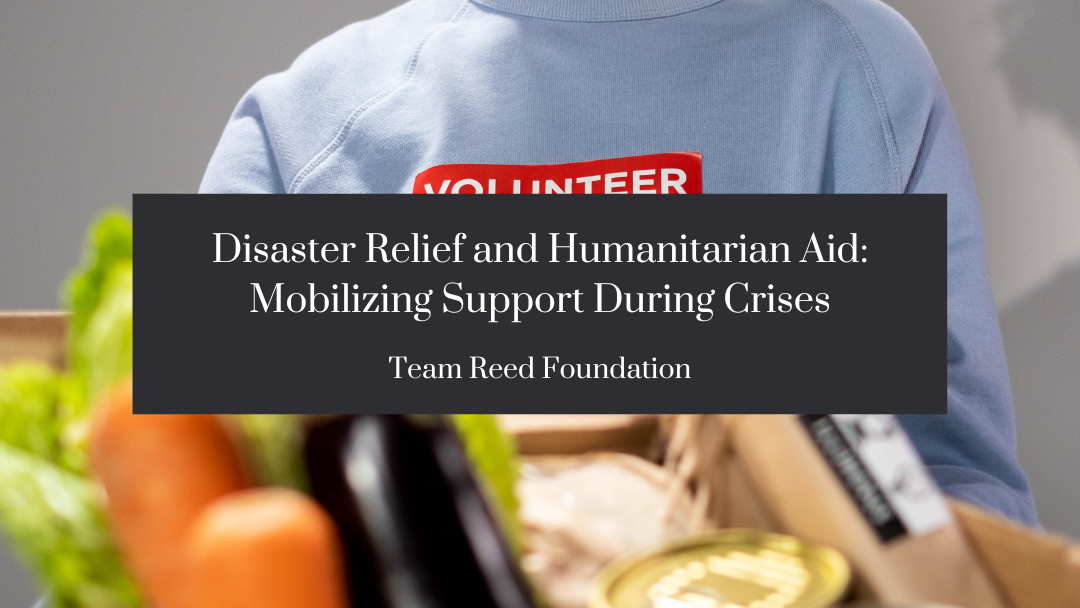The need for immediate assistance is paramount when disaster strikes, whether it’s a natural calamity like an earthquake or a humanitarian crisis like a refugee influx. Disaster relief and humanitarian aid organizations are crucial in supporting and relieving affected communities.
The Importance of Timely Support
Disasters, natural or man-made, can lead to devastation on an unprecedented scale. Lives are lost, homes are destroyed, and entire communities are left in disarray. Timely support is essential to save lives, alleviate suffering, and help affected populations rebuild their lives. Humanitarian aid organizations, often the first responders in such situations, play a pivotal role in delivering this support.
Challenges Faced by Relief Organizations
- Logistics: Delivering aid to remote or disaster-stricken areas can be extremely challenging due to damaged infrastructure, disrupted supply chains, and logistical hurdles. Relief organizations must quickly mobilize resources to overcome these obstacles.
- Funding: Providing humanitarian aid requires substantial financial resources. Donations and funding are essential to ensure relief organizations respond effectively and sustainably. Economic challenges can limit the scope of relief efforts.
- Coordination: Coordinating efforts among relief organizations, government agencies, and local stakeholders can be complex. Effective communication and collaboration are crucial to avoid duplication of efforts and maximize impact.
- Security: In many disaster and conflict zones, the safety of relief workers is at risk. Ensuring the security of aid workers is a top priority for relief organizations.
Ways to Mobilize Support
- Donate: One of the most direct ways to support disaster relief and humanitarian aid efforts is by making a financial contribution to reputable organizations. These organizations use donations to purchase essential supplies, provide medical care, and deliver food and clean water to those in need.
- Volunteer: If you have the skills and time, consider volunteering with a humanitarian organization. Many organizations accept volunteers with medical, engineering, logistics, and language skills. Your expertise can make a significant difference on the ground.
- Raise Awareness: Use your voice and social media platforms to raise awareness about ongoing crises and relief efforts. Sharing information about how others can help can inspire more people to contribute.
- Advocate: Contact your government representatives and advocate for policies that support humanitarian aid and disaster relief efforts. Encourage your government to allocate funds and resources to these critical initiatives.
- Corporate and Institutional Support: Encourage your workplace or business to get involved. Many companies support relief efforts through donations, matching employee contributions, or providing in-kind support.
- Education and Training: Consider taking courses or training in disaster response and humanitarian aid. Equipping yourself with knowledge and skills can prepare you to contribute effectively during crises.
Disaster relief and humanitarian aid are lifelines for communities in crisis. These organizations work tirelessly to provide essential support and hope in the darkest times. However, their efforts are often constrained by logistical challenges, funding limitations, and complex coordination requirements. Individuals, governments, and businesses must mobilize support and contribute to these endeavors.
By donating, volunteering, advocating, and raising awareness, we can help disaster relief and humanitarian aid organizations make a more significant impact and save more lives. In a world where disasters and crises are unfortunately common, our collective support can make a difference in the lives of those affected and help them rebuild their communities with resilience and hope. Remember, it’s not just about responding to disasters; it’s about showing the best of humanity by extending a helping hand when needed.

